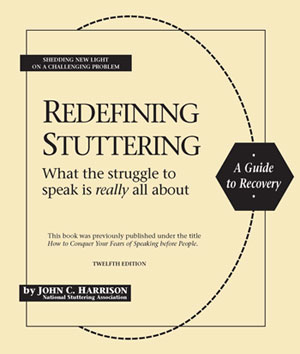Stuttering
Answers
all your speech dysfluency
questions answered
on one site
Is it Stuttering or Stammering in the English Language?
The Origin of Stuttering and Stammering.
The origin of the word stutter is an Old English (also know as Anglo-Saxon) word. The most important force in shaping Old English was its Germanic heritage. The German word stottern then became stutter in Old English. This Germanic influence also spread into parts of Scandinavia and the Baltic countries. Hence in Dutch we find stotteren while in Latvian we find stostīšanās.
The origin of the word stammer is an Old Norse word. In the 9th and 10th century the Vikings invaded Britain from the Scandinavian countries, mainly Norway and Denmark. They settled mainly in what is now eastern and north eastern England in an area then known as Danelaw and their language began to heavily influence the Old English language in that area. Hence the Danish word stamme and the Norwegian word stamming added to the Old English language in that area so that what would normally be called stuttering became described as stammering.
There was much trade and communication between the Norse invaders and the Anglo-Saxons so one would find that the English would “borrow” everyday words from the Old Norse language to assist them in their communication with the Vikings. This was especially true where the interchangeable words were similar (because of their common Germanic origin). So the English had no trouble in substituting “stamm-ering” for “stutt-ering” so that the meaning would be clear. This tends to indicate that this fluency disorder was of such prevalence that it required description and communicating to explain a communication behaviour.
The Vikings were driven out of Britain by battles commenced by Alfred the Great and his descendants and eventually finished by the Norman King, William the Conqueror but their influence on the English language remained.
It is not uncommon in the English language to find words that basically describe the same thing, one of Germanic origin “Old English” and the other of Scandinavian origin “Old Norse” like ill (Old Norse) and sick (Old English). Hence stuttering and stammering.
As most of the early settlers of the USA came from the west cost of Britain (including Ireland and Scotland) where the Old English word stuttering was used we find that that word is now used in the USA today while in the United Kingdom the word stammering has managed to become the most common of the two words now used. Stuttering is also used in Canada, Australia ans New Zealand.
|
Stuttering Facts
Stuttering Advice
Stuttering Treatment Centres
Stuttering Treatments
Useful Articles Books, Audio & Video
Videos About Stuttering
Stuttering Support Groups
Stuttering News Articles
Stuttering Research
Discussion Forums
Conferences & Events
|
Copyright (c) 2011 - All Right Reserved - Stuttering Answers

